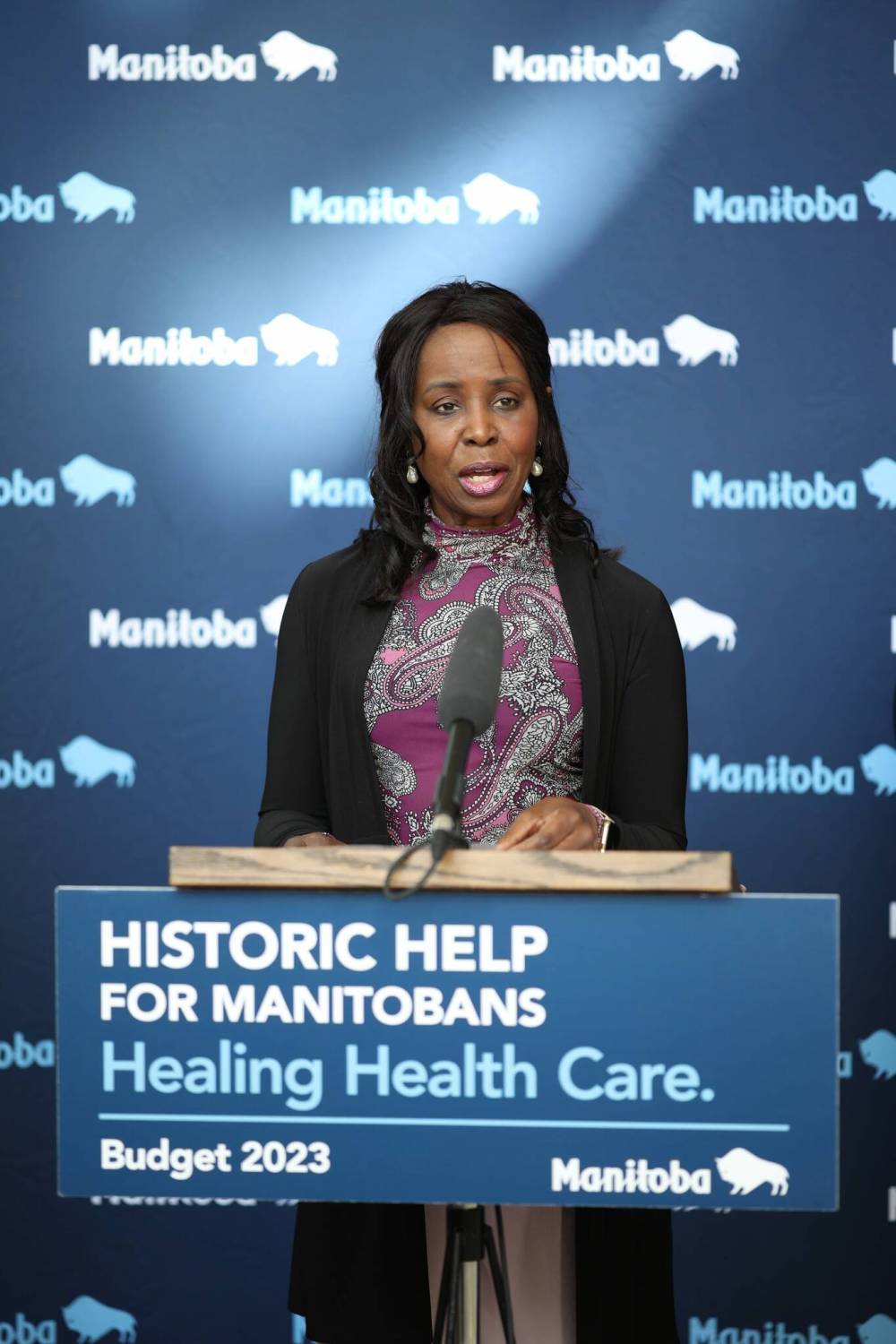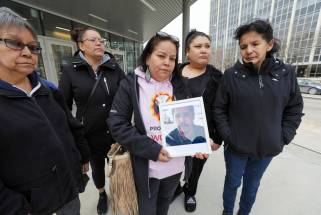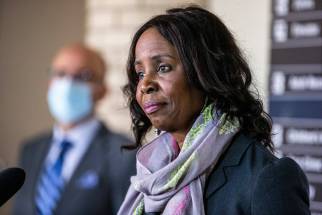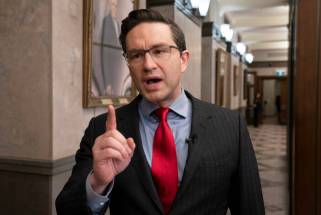Politicians leave questions unanswered, democracy eroded
Read this article for free:
or
Already have an account? Log in here »
To continue reading, please subscribe:
Monthly Digital Subscription
$0 for the first 4 weeks*
- Enjoy unlimited reading on winnipegfreepress.com
- Read the E-Edition, our digital replica newspaper
- Access News Break, our award-winning app
- Play interactive puzzles
*No charge for 4 weeks then price increases to the regular rate of $19.00 plus GST every four weeks. Offer available to new and qualified returning subscribers only. Cancel any time.
Monthly Digital Subscription
$4.75/week*
- Enjoy unlimited reading on winnipegfreepress.com
- Read the E-Edition, our digital replica newspaper
- Access News Break, our award-winning app
- Play interactive puzzles
*Billed as $19 plus GST every four weeks. Cancel any time.
To continue reading, please subscribe:
Add Free Press access to your Brandon Sun subscription for only an additional
$1 for the first 4 weeks*
*Your next subscription payment will increase by $1.00 and you will be charged $16.99 plus GST for four weeks. After four weeks, your payment will increase to $23.99 plus GST every four weeks.
Read unlimited articles for free today:
or
Already have an account? Log in here »
Hey there, time traveller!
This article was published 18/04/2023 (966 days ago), so information in it may no longer be current.
One thing Gary Filmon insisted on as premier of Manitoba was cabinet ministers weren’t allowed to hide in their offices when the going got tough.
They had to make themselves available to the news media to answer questions — in person — no matter how uncomfortable it made them feel. It was non-negotiable.
Filmon, who was Tory premier from 1988 to 1999, included himself in that hard-and-fast rule. He faced the cameras on a regular basis, even on the thorniest issues.
His successor, NDP premier Gary Doer, continued the tradition into the 2000s. Staff couldn’t pry him away from a scrum of reporters if they wanted to.
However, the trend of “statements” written by political staff, replacing in-person interviews, started to creep in towards the end of Doer’s reign (1999-2009).
It got worse under NDP premier Greg Selinger and deteriorated further after 2016, when the Progressive Conservatives formed government.
Today, it’s commonplace for cabinet ministers to refuse interview requests.
Today, it’s commonplace for cabinet ministers to refuse interview requests. More often than not, their political staff send out email responses instead.
It’s not just annoying, it’s an attack on democracy.
Health Minister Audrey Gordon is one of the worst offenders. The frequency with which she is “not available” to answer questions from reporters is breathtaking.
Even when she is physically present in the legislative assembly, her staff regularly turn down requests by the press gallery for in-person interviews.
On Monday, when Gordon was facing criticism in question period about Manitoba’s doctor shortage, she blurted out the province was launching a new recruitment program to attract physicians.
TIM SMITH / BRANDON SUN FILES Audrey Gordon is one of the worst offenders, mostly because she is incompetent and struggles to answer basic questions.
However, she refused to answer questions about it following question period. That’s par for the course for the minister and most of her colleagues.
Bonnie Staples-Lyon is a senior political staff member who works for Premier Heather Stefanson. She was Filmon’s press secretary in the 1990s. Back then, she would never have stood for the obstructionist tactics we see today. It would not have been tolerated by her former boss.
In those days, it was a political liability to have a news story about a minister not answering questions. Today, it’s a standard response.
Staples-Lyon and her colleagues now orchestrate the stonewalling that was political taboo 25 years ago.
This isn’t just a Manitoba issue. It’s happening at all levels of government across the country. Political staff regularly deny requests for interviews, not only with ministers but with senior civil servants.
There was a time when reporters had easy access to top bureaucrats and could, through interviews, obtain accurate, reliable information to share with the public. That access is now rare.
Instead of telephone or in-person interviews, communications staff typically issue carefully written responses that contain as little information as possible. It is not a replacement for interviews, where reporters can ask follow-up questions, seek clarification and press for answers when government is reluctant to give them. It is not meant to be.
The purpose of denying most interview requests and replacing them with email statements is to give government more control over its messaging and to mitigate damage — like when politicians go off script or say dumb things.
The upshot is the public is not well-served. It is not getting the answers and accountability it deserves. Important questions and follow-up queries are regularly ignored.
Even when ministers do make themselves available, it’s often brief and deliberately cut short by political staff.
Gordon is one of the worst offenders, mostly because she is incompetent and struggles to answer basic questions. It’s the same reason she regularly avoids taking questions from media.
The upshot is the public is not well-served. It is not getting the answers and accountability it deserves. Important questions and follow-up queries are regularly ignored.
It’s bad for democracy and contributes to political apathy.
This should be a campaign issue in the upcoming provincial election, scheduled for Oct. 3. All candidates should be asked for a commitment on whether they are prepared to make interviews the norm again and emailed statements the exception.
Everyone running for office should be on the record about what their intentions are when it comes to being open and accountable with the public.
The more governments hide and refuse to answer questions on important issues, the further it erodes democracy.
Filmon and Doer would never have stood for it.
tom.brodbeck@freepress.mb.ca

Tom Brodbeck is an award-winning author and columnist with over 30 years experience in print media. He joined the Free Press in 2019. Born and raised in Montreal, Tom graduated from the University of Manitoba in 1993 with a Bachelor of Arts degree in economics and commerce. Read more about Tom.
Tom provides commentary and analysis on political and related issues at the municipal, provincial and federal level. His columns are built on research and coverage of local events. The Free Press’s editing team reviews Tom’s columns before they are posted online or published in print – part of the Free Press’s tradition, since 1872, of producing reliable independent journalism. Read more about Free Press’s history and mandate, and learn how our newsroom operates.
Our newsroom depends on a growing audience of readers to power our journalism. If you are not a paid reader, please consider becoming a subscriber.
Our newsroom depends on its audience of readers to power our journalism. Thank you for your support.











